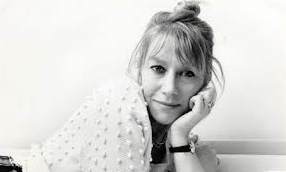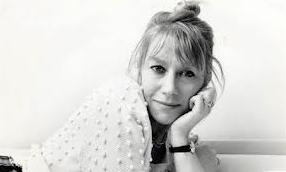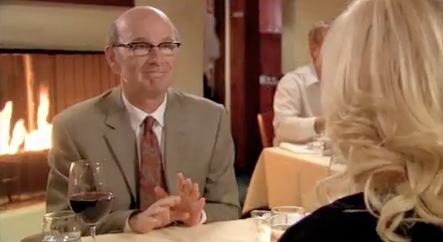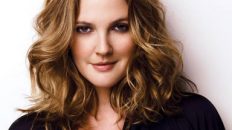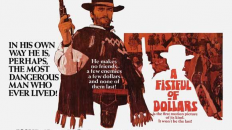By Karen Bayly
I’m all for Diversity Casting and for dispensing with ethnic and LGBT stereotypes. Ethnicity and sexual orientation do not affect whether one is a lawyer, surfer, good person, bad person, etc. We all know that. However, I would like see a similar action against ageist stereotypes, for both men and women. In particular, I’d like to see a re-examination of roles for older women. Older men can still get to play strong, complex and even heroic characters (not always, I know, and I will get to that). Older women get to play … grandmothers.
The thing is not all women over the age of 45 are grandmothers. Many western women born in the late 50s and early 60s delayed having children to pursue degrees and sometimes careers. They had their first child in their late 20s or early 30s. Their children are doing exactly the same, so while women 45 + may have grownup children, who may or may not be married, they do not have grandchildren.
However, a growing number of women over the age of 45 are not even mothers. Statistics from around the world show that between 18% and 24% of women over the age of 45 are childless, with predictions of between 20% and 28% in the near future. (Note: 45 is the age at women are deemed to be statistically past childbearing.)
It may surprise you to know that the childlessness rate for women born in the early part of last century was also around 20%-30% worldwide. It dropped to around 10% for women born 1930 and onwards – this was the generation who became mothers during the post-Second World War baby boom. So childlessness is by no means a new phenomenon, just an under-represented one. In addition, around 67% of women in the over 45 age group are married with the rest either in de facto relationships (~8%), divorced, separated or widowed (~18%) or never married and not in a de facto relationship (~7%).
This is the reality of older females in the western world. Somewhere around one-fifth to one-quarter are childless, and one-third are not married. Yet from TV and films, and even theatre, you would believe that our reality was much different, and that every single western woman was married or a mother.
It doesn’t help that there is a pervasive social attitude that there is something “wrong” with women who are childless, that they are “unwomanly”, “selfish” and “cold”. However, the reasons for not having children are varied and include being unable to conceive or carry a child, not responding to babies (although they may be nurturing in other ways), choosing not to have children so they can pursue a demanding career, or not wanting to bring children into this world for moral or environmental reasons. None of these reasons are inherently “unwomanly” or “cold”.
This is where the big screen, the small screen, and the stage are supposed to step in and change people’s attitudes. If we start seeing positive examples of all types of older women – married, single, mothers, highly-educated, not highly educated – then perhaps we can start to appreciate all women, regardless of age, for the breadth of their contribution to society, rather than their fecundity. It is a world-wide issue. Juliet Stevens (“Truly, Madly, Deeply” and “Bend it Like Beckham”) recently noted that “As you go on in your life you get more complex and have more life experience, but lots of writers don’t think that way. The fact that we can only cite singularly people like Kim Cattrall and Helen Mirren who play roles which aren’t mothers is a symptom of the situation.” The US is also dragging its heels – even Meryl Streep has slammed the industry for lack of roles for older women. However, Australia is still well and truly in the dark ages. I look at shows and films in production, and most of the time there isn’t anything for women over 45, and if there is, it will invariably be a small “mother” support role or 50-worder that is so two-dimensional, you wonder if the writers even have mothers.
Of course, ageism doesn’t just affect women. It has a negative effect on our perception of older males as well. A prime example of this is given on the website http://ageismhurts.org. It discusses the take on a 62 year old male on NBC’s sitcom “Parks and Recreation”. Now I agree that comedy is often peopled by stereotypes; however, we have already agreed that stereotypes based on ethnicity are not acceptable, so why should we accept stereotypes based on ageing?
See if you can pick what is ageist in this clip … (click on picture above)
Did you pick the “Senior’s Moment” line? (If an older person forgets something it has to because they old, not nervous, distracted, or any other possible reason.) And the fact that he hadn’t been to a rock concert since the Everly Brothers? Or even that his idea of a rock band was the Everly Brothers? (Given that most people of this age were young during the whole Rolling Stones-The Who-Led Zeppelin-Jimi Hendrix etc era, this guy’s perception of a rock band would hardly be representative of that whole generation). Then there was the quip “This is my wife and she is my age”, the “Dead or Asleep” gag, and so on. And what if you didn’t seen any of it as ageist? Well, just like racism, sometimes people need to be educated.
Storylines about older people, whether main plot or sub plot, are not necessarily of interest only to older people. Younger people may also find something of interest. Rather than seeing older people as ancient irrelevant relics, they may just get to see the consequences of actions taken in youth. They could even catch a glimpse their future selves – for better or worse! They may learn to appreciate the value of life experience and see age as something to be valued not reviled. Older people have their woes and tragedies just as younger people do. They are not all happily married, retired and peacefully waiting to die. Older people are dealing with failed marriages, unemployment, loneliness, inability to find love and companionship, lack of money, plus the realisation that one’s life is half over. It hurts and it is scary. Angst is not the domain of the young – and never has been.
All that happens is older people have the experience to cope with all these issues a bit better (sometimes). And can’t wonderful stories and characters be woven from those threads? I think so.
References:
Australian Bureau of Statistics. “Lifetime Childlessness.” September, 1999
Chamie, J and Mirkin, B. “Childless by Choice.” Yale Center for the Study of Globalization, 2012
Doughty, S. “A generation of childless women: How a fifth of 45 year olds have not started a family.” Daily Mail, 17 December 2011
Graham, M. and Rich, S. Working Papers Series Two no. 36 “What’s ‘childless’ got to do with it?” Alfred Deakin Research Institute, Deakin University. August 2012.
Hull, L. “The curse of the young skirt: Older British actresses reveal pressure to undergo cosmetic surgery just to get work.” Daily Mail, 31 May 2010.
Miranti, M. Yap, M., McNamara, J. and Tanton, R. “Where have all the children gone?: Trends in the childlessness of professional women in Australia.” National Centre for Social and Economic Modelling, University of Canberra. July 2008.
Parr, N. “Family Background, Schooling and Childlessness in Australia: What HILDA Tells Us“ Demographic Research Group, Macquarie University. September 2003.
Richards, T. “Childfree by Choice.” Griffith Review Edition 10 – Family Politics 2005


